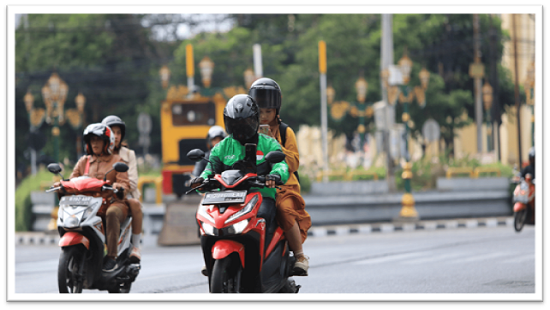
Ola, Uber, Rapido Get Provisional Licences for Bike Taxi Services in Mumbai
Mumbai is preparing to witness a new chapter in urban mobility as app-based aggregators Ola, Uber, and Rapido secure provisional licences to operate bike taxi services in the Mumbai Metropolitan Region (MMR). The move, approved by the State Transport Authority (STA) of Maharashtra, reflects the growing demand for affordable and convenient last-mile connectivity solutions in one of India’s busiest metros.
The licences come at a time when urban transportation in India is undergoing significant reform, with policymakers focusing on regulated, safe, and cost-effective alternatives to traditional cabs and autorickshaws. For commuters, the entry of bike taxis under a formal licensing framework means access to cheaper, faster rides, while for the government, it is an opportunity to enforce safety and compliance measures in a sector that has long operated in grey areas.
Overhaul of Policy Through Maharashtra Bike Taxi Rules 2025
As per the STA’s approval, the licences have been granted provisionally, with companies required to apply for permanent permits within a month. The framework is guided by the newly implemented Maharashtra Bike Taxi Rules 2025, which lay down terms for safety, fare regulation, and service standards. This structured policy ensures that the sector is not only regularized but also aligned with commuter interests and public safety.
Fare Structure: Affordable Mobility for the Masses
Under the new rules, the minimum fare for bike taxis has been set at ₹15 for the first 1.5 km, with subsequent charges at ₹10.27 per km. These fares are considerably lower than those of traditional modes, where autorickshaws charge a minimum of ₹26 and black-and-yellow taxis start at ₹31. The STA has indicated that fares will be reviewed after one year, providing flexibility to adjust for market conditions and operational costs. This affordability factor is expected to drive strong commuter adoption, particularly among daily wage earners, students, and office-goers.
Applications and Approvals: The Competitive Landscape
In the past two months, four companies applied for licences to operate bike taxis in the MMR. However, only Ola, Uber, and Rapido received approvals, while Smart-Ride’s application was rejected for failing to meet regulatory conditions. This selective approach underscores the government’s emphasis on compliance, quality, and accountability among service providers.
Balancing Regulation with Innovation
The licensing decision comes after years of legal and operational uncertainty. In January 2023, the Maharashtra government had prohibited the use of private two-wheelers for app-based services, citing safety and legal concerns. Despite the ban, several operators continued running services illegally, leading to FIRs and penalties. By granting formal licences, the STA is attempting to bring order to a fragmented sector while enabling innovation under a controlled framework.
A Step Toward Integrated Urban Mobility
The move to permit bike taxis under regulated rules positions Mumbai alongside global cities that are embracing multi-modal transport solutions. With traffic congestion, pollution, and last-mile connectivity continuing to challenge urban India, the expansion of affordable bike taxi services could play a pivotal role in shaping sustainable mobility. For Ola, Uber, and Rapido, the challenge will now lie in balancing aggressive expansion with compliance, safety, and customer trust.




